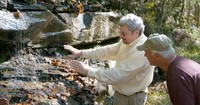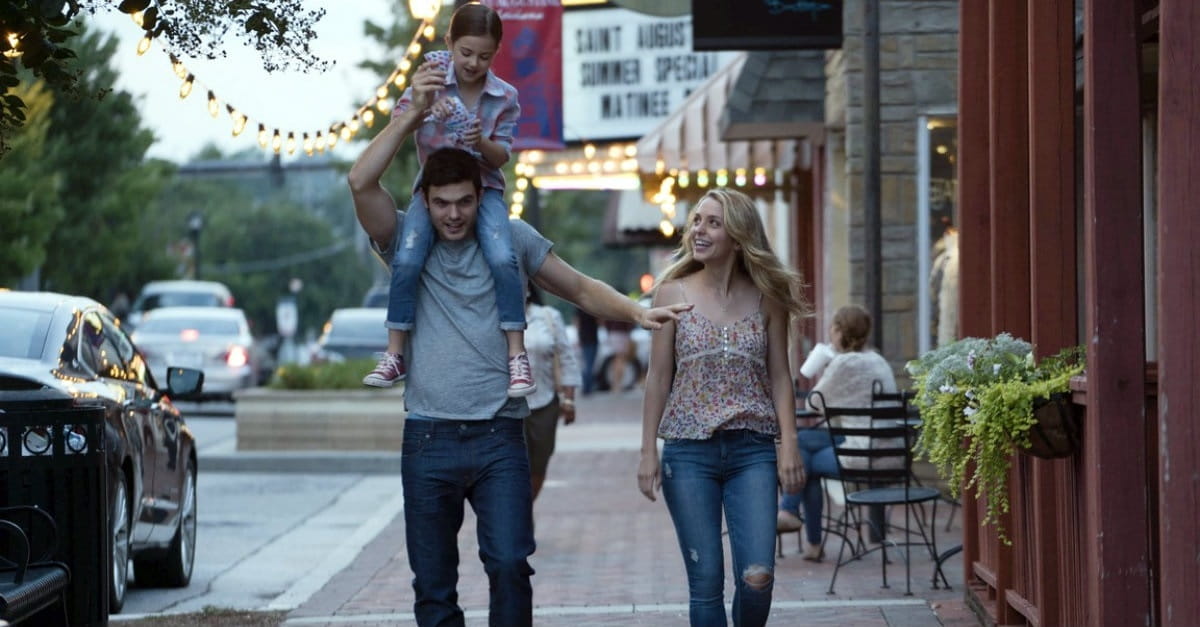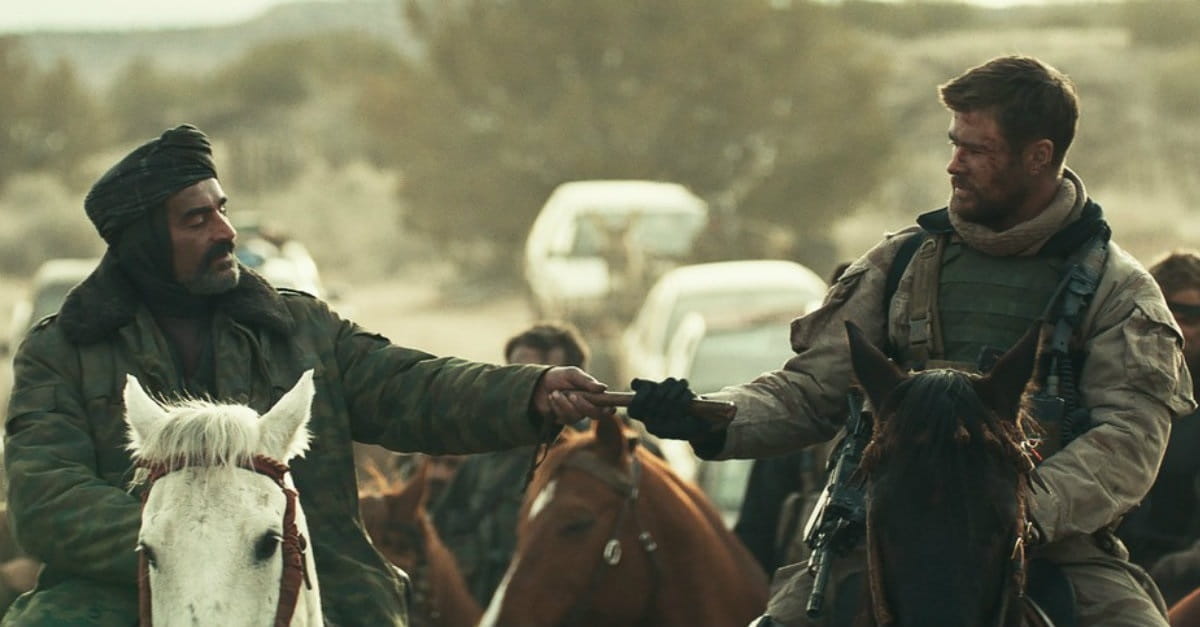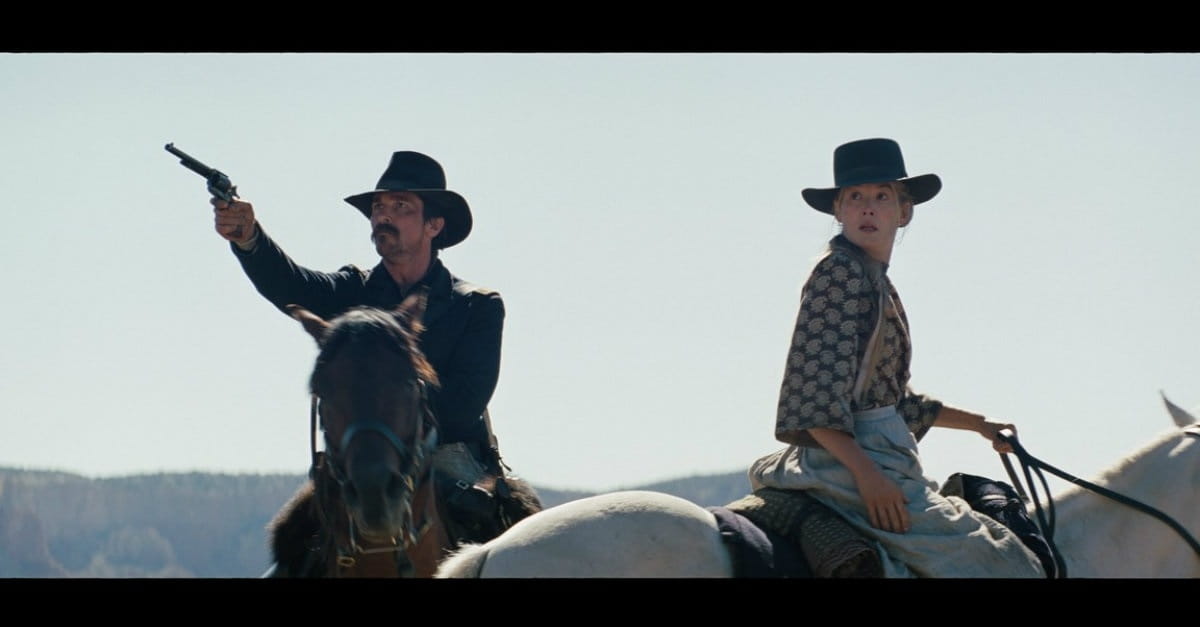The Blind Side Shows Faith in Action
- Christian Hamaker Crosswalk.com Contributing Writer
- Updated Mar 25, 2010

DVD Release Date: March 23, 2010
Theatrical Release Date: November 20, 2009
Rating: PG-13 (for one scene involving brief violence, drug and sexual references)
Genre: Drama, Adaptation
Run Time: 126 min.
Director: John Lee Hancock
Actors: Sandra Bullock, Tim McGraw, Quinton Aaron, Jae Head, Lily Collins, Kathy Bates, Ray McKinnon
Sandra Bullock is having quite a year. After burnishing her star power with the summer hit the proposal, Bullock embodies Southern dynamo Leigh Anne Tuohy in the blind side and, in the process, creates one of the year's more memorable characters. And she's no fictional creation.
This adaptation of a Michael Lewis book (The Blind Side: Evolution of a Game) tells the true story Michael Oher (Quinton Aaron), a gentle hulk of a boy who, through some string-pulling by concerned relatives, gains admission to the same Christian school the Tuohy children attend in Memphis. His IQ of 80 and grade point average of 0.6 present obvious challenges for his teachers and his unwillingness to do any homework is jeopardizing his future at the school.
His one hope, in the eyes of the school, is football—although Oher never has played the game. It's the school's football coach (Ray McKinnon) who, after one look at Oher, makes it his mission to develop Oher into a star athlete.
Oher's other, less self-interested hope is Tuohy, a smartly dressed mother of two who finds Oher, her daughter's classmate at the Christian school, walking the streets in need of a place to stay. She and her husband (Tim McGraw) invite him to sleep in their home, and once there, help to shape him into a well-rounded student with a bright future.
Tuohy also learns that while Oher's academic scores are low, his commitment to protection of those he cares about couldn't be higher. When the efforts of the school's football coach to groom Oher as a star football player meet middling results, it's Leigh Anne's appeal to Oher's protective streak that spark his inspired new level of play. He not only protects the quarterback but demolishes defenders standing between the team's running backs and the end zone.
What gets short shrift in this adaptation is the discussion of the science behind the rise of the left tackle to one of the most highly paid positions in professional football. The film condenses that analysis to a brief introductory sequence set to repeated replays of Joe Theismann's final play in the National Football League—an example of the perils of a quarterback being hit from the blind side. Rather than dwell on the strategies behind successful NFL teams, the film version of The Blind Side goes long on the human drama of a white Southern family raising a large black boy.
The social consequences of the Tuohys' decision are predictable. Leigh Anne's all-white social circle can't figure out a way to politely express their concerns (does Leigh Anne fear that her daughter might be sexually assaulted by Oher?) while the same daughter works up the courage to make a statement of solidarity with Michael by sitting next to him at school.
The Tuohys' altruism could be perceived as self-congratulatory, but the film presents the very real possibility that Michael might pack up and leave the Tuohys' home at any moment in an effort to track down his birth mom. Nevertheless, it's clear throughout the film who has the most to lose from such a decision, and it's refreshing when one of the white characters, prompted to extol her positive impact on the life of this less privileged athlete, comments that she's not changing him—it's the other way around.
Director John Lee Hancock, whose earlier film The Rookie (2002) was one of the best family-friendly films of the decade, guides Bullock and Aaron to fine performances, while McGraw and Kathy Bates are enjoyable, if a bit underused.
The Tuohys' strong Christian faith is evidenced mainly by their actions, although it filters through some of the dialogue as the characters struggle over what the appropriate Christian response should be to their situation. The film's treatment of religion, while not as explicit as some Christian viewers might hope, is marred only by a misquoted Bible verse on a school sign—a jarring error in this otherwise warmhearted, true-life crowd-pleaser.
Questions? Comments? Contact the writer at crosswalkchristian@verizon.net.
CAUTIONS:
- Language/Profanity: Racial epithets; "Mother of God"; "kicking butt"; "don't get your panties in a wad"; "God bless me"; anatomical reference to a topless bar.
- Smoking/Drinking/Drugs: A few scenes of drinking; drugs are shown; reference to a woman who's "on that crack pipe"; a man prefaces a phone message by saying he's had "five cold ones"; a drug dealer mentions that a certain woman usually "stops by for a taste"; Michael remembers how his mother wanted to keep him from seeing her do drugs.
- Sex/Nudity: None. A discussion of football players who are "wide in the butt" set to shots of said players; a married couple kisses in bed, and the husband wants to go further; concerns expressed about a black boy possibly endangering the Tuohys' daughter; a woman slaps another man's backside; players ogle Leigh Anne from behind as she walks away; verbal reference to "mommy/daughter action"; Leigh Anne threatens to cut off Michael's penis if he impregnates a girl.
- Violence/Crime: Hard-hitting football scenes, including replays of Joe Theismann's leg getting broken during a tackle by Lawrence Taylor; car crash; blood-stained clothes; handguns are fired during an altercation.
- Religion: Matthew 19:26 is displayed on a school sign, but the word "impossible" appears as "possible"; discussion of what the Christian thing to do is in regard to Oher's future; Leigh Anne says grace before the family eats dinner; Le Anne wears a cross necklace; a woman says she wasn't spiritual enough to be hired, and that she has certain doubts; Leigh Anne says, "I suppose I have God to thank" for Michael's presence in her life.














